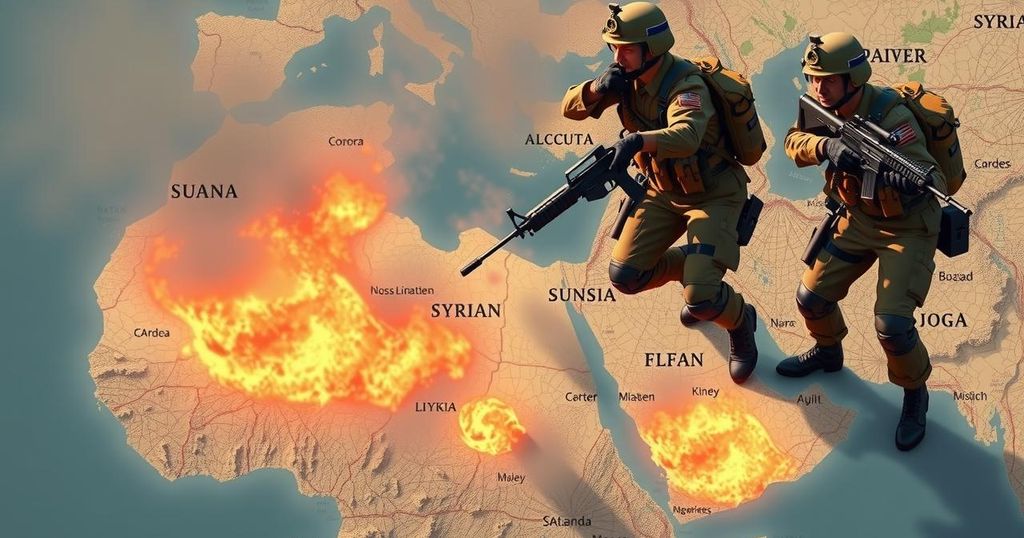The article examines how Russia’s potential loss of military bases in Syria may lead it to seek new footholds in Africa, specifically in Sudan and Libya. The impact of the ongoing civil war and the role of the Wagner Group in these countries are central to understanding Russia’s evolving military strategy. Both locations offer opportunities but also present significant challenges due to their complex political environments.
The Syrian civil war, now entering its twelfth year, has seen the consolidation of power by rebel forces, signaling a potential loss for Russia of its vital military bases in Syria, specifically the naval base at Tartus and the Khmeimim airfield. These installations have been crucial for Russia’s influence in the Middle East and its operations in Africa. According to the Institute for the Study of War, the collapse of Assad’s regime would severely hinder Russia’s strategic objectives not only in the Mediterranean but also in the Red Sea region, impacting its capacity to challenge NATO’s influence.
In response to potential losses, Russia appears to be pivoting toward war-torn Sudan and the divided state of Libya as alternative locations for military operations in Africa. Recent reports indicate that Sudan has engaged in discussions with Russia concerning a naval base near Port Sudan, marking a strategic opportunity for Moscow, given that Sudan is rich in resources, particularly gold. Moreover, the Wagner Group, a private military contractor with significant influence in Africa, has been exploiting local conflicts to expand its operations in Sudan, where it has established lucrative mining ventures.
In Libya, Russian involvement has been multifaceted, characterized by direct military support to local factions amid significant governance issues. The Wagner Group has provided assistance to General Khalifa Haftar’s Libyan National Army, seeking to exploit oil and mineral wealth while establishing logistical footholds in southern Libya. Reports also suggest plans for a naval base in Tobruk to control Mediterranean trade routes, highlighting the importance of Libya in Russia’s broader strategy.
However, both Sudan and Libya pose challenges for Russia due to the complex political landscapes and lack of formal agreements that could adequately replace the lost capabilities from Syria. While Russia aims to reinforce its presence in Africa, these endeavors must navigate significant obstacles, including local resistance and international scrutiny. The loss of its installations in Syria may prompt a reevaluation of Russia’s military strategy in the region, as it actively seeks new pathways to sustain its geopolitical ambitions.
This article discusses Russia’s strategic military interests in the Middle East and Africa, specifically in light of the ongoing Syrian civil war. The fall of Bashar al-Assad’s regime is anticipated to diminish Russia’s influence, as it risks losing its naval base in Tartus and airfield in Khmeimim, both essential for operations in Africa. In response, Russia may consider establishing bases in war-torn Sudan and Libya. The Wagner Group, a notorious private military contractor, plays a pivotal role in these scenarios by securing resources and political leverage in unstable regions of Africa. The article analyzes the implications of these potential changes on Russia’s military strategy and geopolitical objectives.
In summary, Russia’s anticipated loss of military assets in Syria poses significant challenges to its strategic ambitions in Africa, urging the Kremlin to explore alternative bases in regions like Sudan and Libya. Both countries present their own complexities, including political instability and international scrutiny. As Russia navigates these challenges, the role of the Wagner Group remains critical in solidifying Moscow’s foothold in Africa amidst shifting geopolitical landscapes.
Original Source: www.intellinews.com






